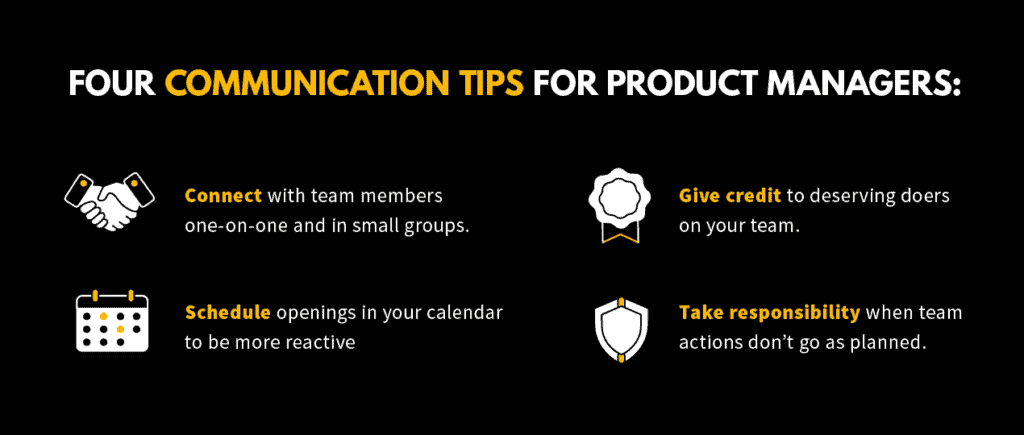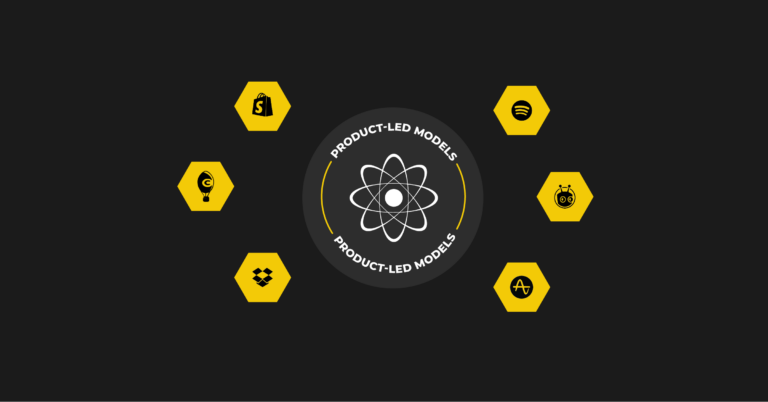A SaaS product manager doesn’t actually manage – they’re one member of a team effort. They are not the best engineers, designers, or business people, but they are good enough at just about everything.
Put simply; a product manager is a generalist.
Whether you’re just starting out as a SaaS product manager or looking to hone your skills in a product-led growth business, this article will provide you with the tips and know-how to set you up for success:
- How to Influence Your Team.
- Workplace Communication Tips.
- Great Product Managers Skills.
- Finding Work and Getting Hired.
- Having a “Just Do It” Attitude.
Let’s begin with noting the difference between product-led and sales-led product managers. While they are similar, there are still notable differences.
Product-Led vs. Sales-Led Managers
The role of SaaS product managers in a product-led business versus a sales-led company is similar, but there are some subtle differences.
A product manager in a product-led organization is more likely going to be comfortable. Generally, the CEO and executives support and understand what they do and why.
On the other hand, a product manager in a sales-led organization has to prioritize what action to take depending on what will have a bigger impact on sales.
How to Influence Your Team
Influence in product management is crucial.
As a SaaS product manager, you need to influence your team without the power of a CEO. You collaborate with engineers, designers, and marketers on the same level and help them understand why your role is important.
Successful product managers walk a thin line between earning the respect of teammates by supporting their efforts and not being an extra task on their busy work agenda.
Lead by example. Be the hardest working person in the room. Make sure that everyone understands what's going on, even when you are not in the room.
Workplace Communication Tips
Great product management boils down to effective communication.
As a product manager, you don’t design, code, or make a sale. Rather, your job is to ensure that everyone understands a specific set of priorities and communicates how their contribution fits the overall business strategy.
Being a good workplace communicator doesn’t mean delivering a great presentation. What counts are the interactions you have with teammates in between meetings.
Here are communication tips for product managers:
- Connect with team members one-on-one and in small groups.
- Schedule openings in your calendar to be more reactive.
- Give credit to deserving doers on your team.
- Take responsibility when team actions don’t go as planned.

Great Product Managers Skills
Traditionally, product managers come from software engineer backgrounds. However, designers, marketers, entrepreneurs, and consultants are successful at the job too.
Here are skills that product managers share:
- Product managers are extremely data-driven. This doesn't mean they have to be coding experts, engineers, or run continuous queries. But they do need to be self-sufficient at developing a hypothesis and using data to back it up.
- Product managers (especially first-time product managers) are passionate about the industry they’re in. They also need to understand their product and users. This is less critical for experienced product managers because once you understand how one product works, there are a lot of transferable skills across industries.
- Product managers have a competitive edge if they understand the importance of UX design in B2C and B2B industries. They have an eye for design and understand the patterns of user experience.
- Product managers are curious. They like to geek out and have fun trying new products, but always with a critical eye. Curiosity is ingrained in how they approach life. For example, every time I receive a marketing email from any company, I analyze their headline and then their call-to-action.
Finding Work and Getting Hired
The internal structure of each company is different. Sometimes a founder has a technical, product mindset, and they take on the responsibilities of product management at the earlier stage of business growth. Eventually, the product management becomes too much because there are other mounting tasks – recruiting, marketing, fundraising, etc.
Companies generally hire a full-time product manager when they have three to five engineers and 10 to 20 total employees.
Product Management at Startups
There’s no getting around it: working at an early-stage startup as a product manager is hard.
The work pace is fast, and you need to be comfortable taking on tasks that are not part of the official job description. Startups usually promote an employee from within the company to be their new product manager. Doing so ensures the position is filled by someone familiar with their company culture and can work in a fast-moving environment.
Product Manager Newbies
Aspiring SaaS product managers should seek employment at medium to large organizations. With this size, companies typically have a product practice established and senior management that mentor new hires and teach good practices. If you’re just getting started as a product manager, the craziness of a startup work environment won’t set you up for success.
Having a “Just Do It” Attitude
You’re not always going to feel you have what it takes to be a great product manager.
Maybe the fear of failure is holding you back from applying for the job. Perhaps you are a product manager, but you’re not the VP of Product, which prevents you from taking more strategic actions at work.
A “just do it” attitude pushes SaaS product managers to be better.
Try and ask for forgiveness instead of asking for permission. That's especially true for product-led growth because everyone operates under certain hypotheses. The industry is looking for people who can go for it and take risks.









